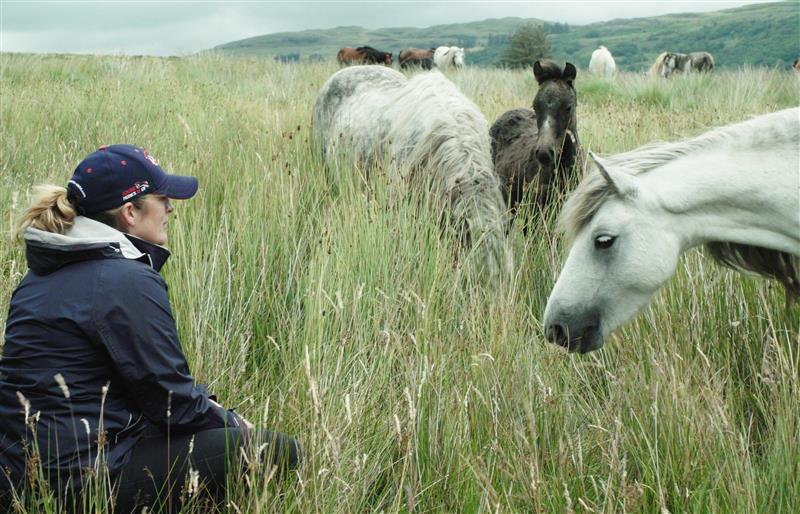During the winter, horse owners often worry about whether their horse should be kept stabled or turned out in the field.
Eileen Gillen, Centre Manager at Belwade Farm, our most northerly Rescue and Rehoming Centre, offers some advice:
“How many of us keep our horse stabled during the winter months as a matter of course? Is it to make sure they don’t lose condition because they are in work and clipped out? Is it because they will poach the ground, causing more work to reclaim good grazing for the summer? The important thing to consider is what the horse thinks about it all.
“They are herd animals who are, in general, more resilient than we give them credit for. They can adapt successfully if they are given a chance to acclimatise to their surroundings.
“The horse grows a winter coat that we clip off because they will sweat too much when exercised. Good practice, we all think. But how many of us exercise for only one hour a day and then expect the horse to stand in for the other 23 hours? We then wonder why he has started to box walk, weave or kick the door.
“If you are worried about turning your horse out in the cold, remember that they have a waterproof coat and a built-in central heating system – the digestion of fibre generates a lot of heat, keeping horses warm from the inside out. For many horses, this will be enough to keep them warm throughout the winter.
“However, if your horse needs a bit more help, there are all sorts of rugs available – you can even find ones which would keep your horse warm at -40°c!
“If you are worried about injuries from turning your horse out, please try and remember that the physical and mental benefits of turning horses out, outweigh the risk of injury (unless you have been directed by your vet to restrict turnout for medical reasons). I feel strongly about this because we come across too many horses that are not let out and as such, aren’t happy horses.
“For example, I once came across a Thoroughbred stallion. He was put into a barn and when mares came to be covered, they were put in with him. He was never let out of this barn, and this had been ongoing for four years. He was in good condition but quite unmanageable.
“If it is necessary to keep a horse stabled then the following should occur. Ideally, where possible, the horse should be in hard work; it should also be on controlled rations and the stable should be big enough, provide visual contact with other horses and have good ventilation.
“In our experience, stabled horses tend to have more ailments than un-stabled horses. It is very easy to label a horse as having respiratory issues, when this could be resolved through regular turn out. Horses should be allowed access to paddocks so they can relax naturally. Yards with a large number of horses often find turning out horses for an hour a day impractical. One observes that horses in this sort of environment are frequently the ones displaying boredom/stress behaviours.
“A final thought: in the winter when it is snowing or raining, how often do you see a horse standing outside beside its field shelter? In summer, however, you might not see your horse outside much because it is inside getting away from the flies!”
Popular advice in Environment

Winter horse care tips
Read our advice on how to care for your horse during winter, including our top ten tips on winter horse care.

Pasture management for horse paddocks
Find out how to manage your paddock for the health of your horse, pasture and soil.
Other advice categories
All webinar categories:
Call our Advice Line
+44 (0)1953 497 238Not found the advice or answer you were looking for here? Then our Advice Line is available during office hours, or you can email us on [email protected] to let us know what topics you were looking for.


